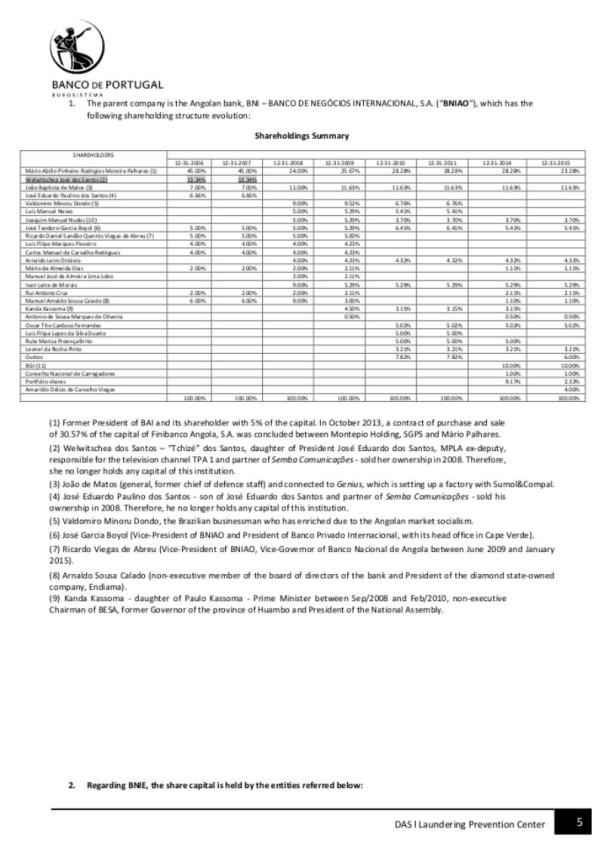
A group of Angolan government officials and senior bank executives funneled hundreds of millions of dollars out of the country with little oversight, creating their own private banking network through which they sent the money to Portugal and elsewhere in the European Union, an OCCRP investigation has found.
The network sent at least $324 million through its banks, with most of the funds originating in Angola. In addition, $257 million was found to be held by European companies closely affiliated with these officials.
The scheme was documented in 2016 by Portuguese regulators in two audit reports, which have not previously been made public. In the reports, the banks the group established and used were described as having violated dozens of Portuguese banking regulations. The audit findings, in which the group’s millions were flagged as highly suspicious, were brought to the attention of Portuguese and European Union officials, but the secretive financial network still functions today.
“Portugal’s leadership wasn’t sensitive to the long term damage that laundering this money would do to the country,” said Ana Gomes, a former Portuguese member of the European Parliament.
Aside from hurting Portugal’s reputation, the network continues to corrupt the country, she added.
Gomes said in an interview that its operation required a “spreading web of corruption and tax evasion engineered by many Portuguese lawyers, bankers, accountants, consultants, business people, civil servants, and politicians.”
The ongoing scheme has had even more dire implications for Angola.
Nearly Half The Southern African Nation’s Population Lives In Poverty. Some of the money that disappeared into the network could have been spent on infrastructure, education, or health clinics.
The Bairro Rangel informal settlement in Angola’s capital of Luanda. Despite vast oil wealth, nearly half of the country’s population lives in poverty.

| Posted: at | |



 maxzy277
maxzy277 jahlovesme
jahlovesme Bern_dina
Bern_dina TRENDING GISTS
TRENDING GISTS 
 Naira Prostrates Further Against Dollar Despite EFCC Raid On Speculators
Naira Prostrates Further Against Dollar Despite EFCC Raid On Speculators Ukraine-Russia War! Missile, Drone Attacks Launched On Ukraine’s Energy Grid
Ukraine-Russia War! Missile, Drone Attacks Launched On Ukraine’s Energy Grid VIDEO: Speed Darlington Slams People Comparing Him To Wizkid
VIDEO: Speed Darlington Slams People Comparing Him To Wizkid Not Less Than 2 People Died, 3 Critically Injured In Gas Explosion That Rocks Shop In Lagos
Not Less Than 2 People Died, 3 Critically Injured In Gas Explosion That Rocks Shop In Lagos